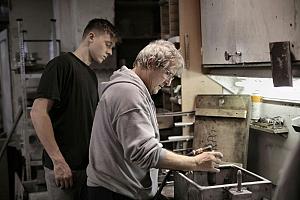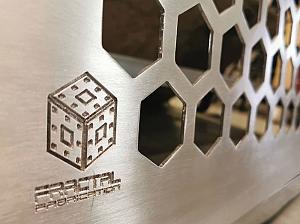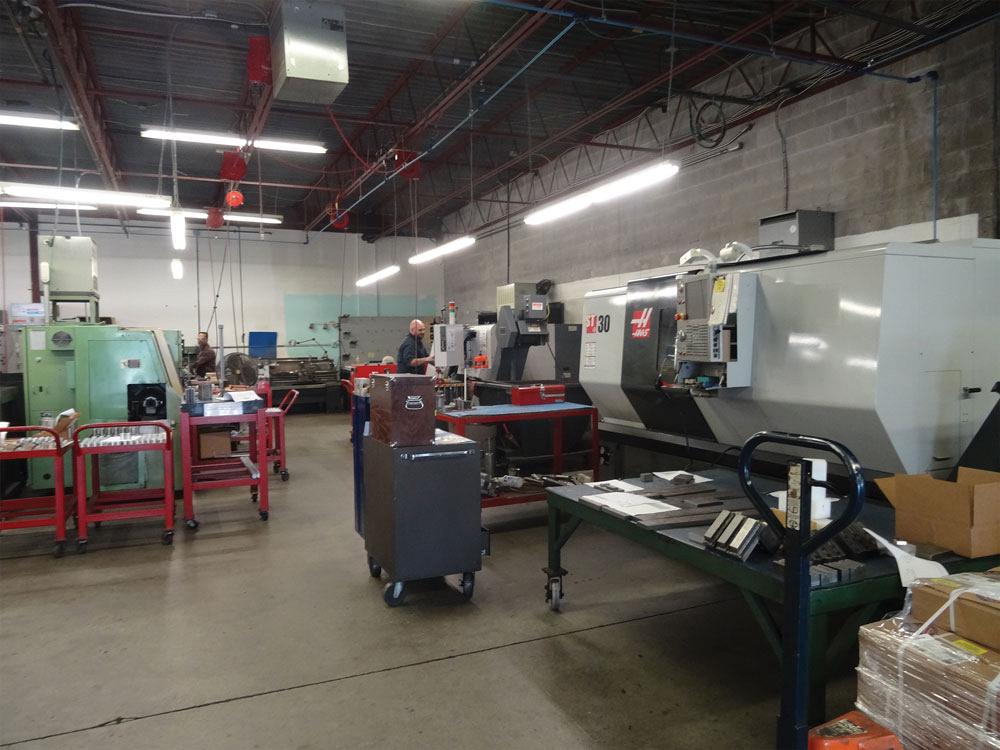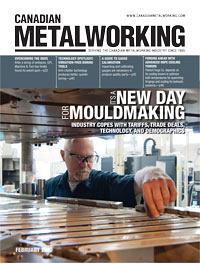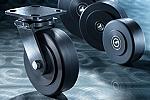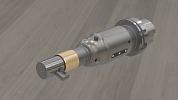Associate Editor
- FMA
- The Fabricator
- FABTECH
- Canadian Metalworking
GPL Machine & Tool comes back strong after tough times
London, Ont.-based machine shop focuses on its strong relationships with longtime customers
- By Lindsay Luminoso
- February 13, 2019
- Article
- Metalworking
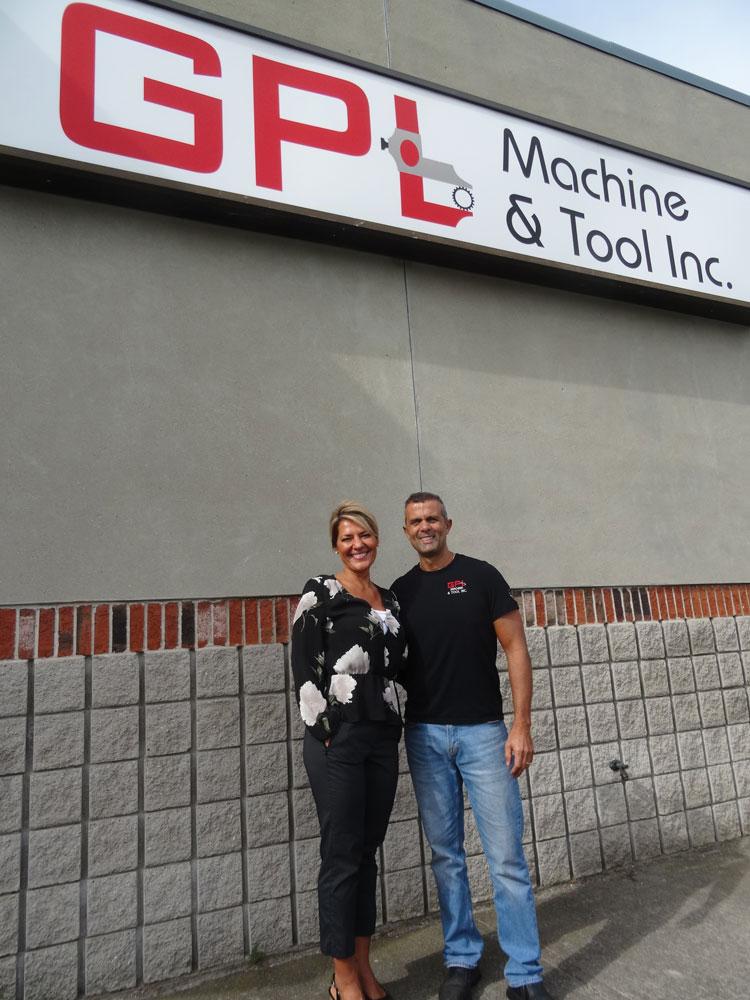
In 2007 Paul and Elizabeth Lobo moved GPL Machine & Tool to its current 10,000-sq.-ft. facility in London, Ont.
Tucked away in an industrial hub of London, Ont., GPL Machine & Tool is turning a challenging past few years into a strong future. The company was founded in 1986 by Germano Pinto Lobo and still bears his initials after he passed the torch to his son and daughter-in-law, Paul and Elizabeth Lobo, in 2003.
"During the first several years, GPL has faced many challenges, from losing production to China due to fierce competitive pricing, the 2009 automotive recession, and most recently the decline in the oil and gas industry," said Elizabeth Lobo, co-owner of GPL Machine & Tool. The only logical thing to do was downsize. The company sold its 16,000-sq.-ft. building and began renting a 10,000-sq.-ft. facility in 2007. "It was just another hurdle that we had to overcome," said Elizabeth. "Fortunately, we were one of the smaller shops that survived [the recession]. We were told whoever survives this will make it for a long time. And here we are today. We made it."
GPL recognized that it needed to expand its capabilities and invested in new equipment, purchasing five new Haas machines through Mississauga-based Sirco Machinery and two new conventional knee mills. This allowed the company to diversify its portfolio, taking on jobs from automotive, environmental, and defence sectors. However, it was the oil and gas industry that helped GPL weather the recession. A majority of its work came from western Canada.
"Most of the work that we were awarded was through word of mouth," explained Elizabeth. "We didn’t do any advertising or sales pitches. And still to this day, many are still our customers. We’ve grown into a trusted relationship with them. They know how hard we work, how we maintain a competitive cost and high-quality workmanship to all our manufactured components."
The company has begun to focus equally on the different industries, rather than concentrating on just one. Elizabeth said that after going through the tough times, they wanted to set themselves up for success, and that meant diversifying across many different industries.
OVERCOMING PRODUCTION CHALLENGES
With the oil and gas industry slowing down, much of GPL’s work is focused in Ontario, with less than 5 per cent in the U.S., which Elizabeth said is good because of the recent steel and aluminum tariffs.
"NAFTA renegotiations and the steel and aluminum tariffs have made this year pretty tough for us," she explained. The company is faced with the fact that all prices have increased, and many customers had to readjust to the new prices. Elizabeth added that in the last couple of months they’ve seen projects pick up again.
However, one of the company’s biggest projects came under scrutiny as GPL faced fierce competition from companies overseas. For the past decade, GPL had been producing an aluminum component for a longtime customer, producing up to 400 units monthly. With the new tariffs and general uptick in prices, the company was forced to readjust its quote. The client told GPL that they were now competing against companies in Asia and their pricing was about 25 per cent less than GPL’s.
"It was tough to overcome as we worked on this for several months," said Elizabeth. "Our customer wouldn’t accept the altered price. So, they gave us a base price to work with and we met the challenge. Paul had to reinvent the wheel and come up with a faster process to machine the component."
He did this by speaking with the customer’s engineers, asking specific questions about finishes and tolerances of all features. The aluminum component includes many holes on all angles. However, after discussions, Paul was able to determine that not all the holes were critical features and the process could be adapted to more easily drill these holes in less time. For example, one hole could take up to 20 minutes to produce. GPL spoke to their tooling supplier to get better tooling for the job and went back and forth with the customer to ensure they were meeting all tolerances.
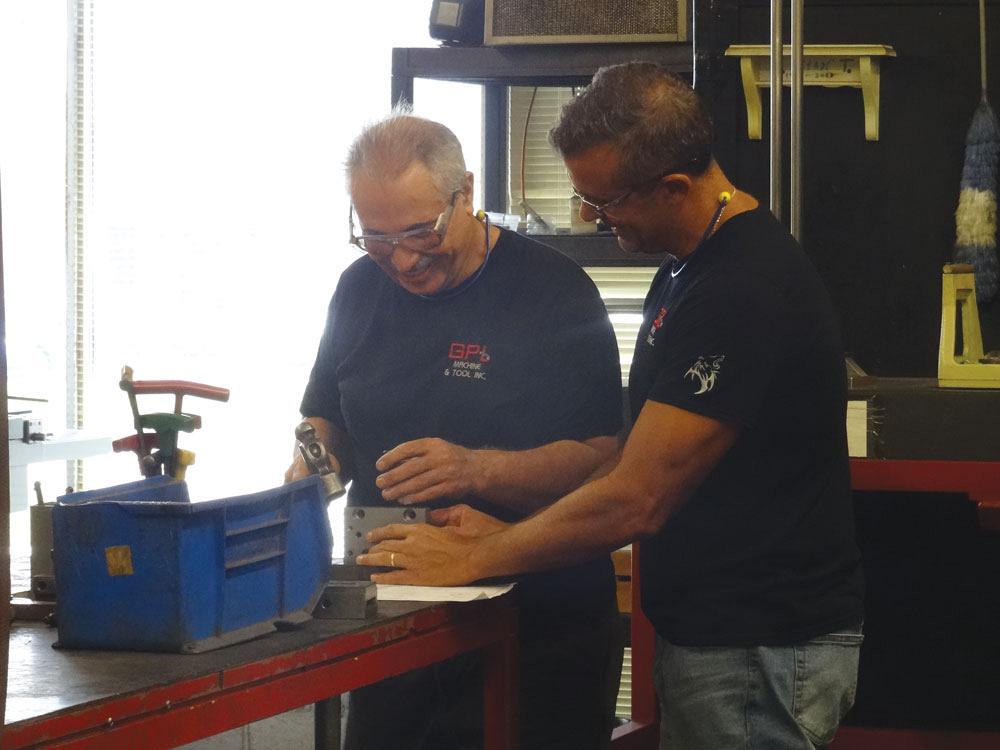
Germano Pinto Lobo (left) founded the company in 1986 and continues to put in hours on the shop floor now that his son Paul (right) has taken over.
In the end, Paul was able to reduce the overall production time from an hour and a half to 45 minutes. The parts passed inspection and the company was awarded the contract for another year.
QUALITY CONTROL
GPL was recently challenged by a longtime customer that was switching to a new product line. The company took on a milling product that entailed a long machining and hard type of tool steel—A514 grade F or H steel.
GPL was unsure of the end use and noticed abbreviation codes among the drawing notes that required clarification before proceeding. After a few back-and-forth conversations with the customer, GPL requested if it would be acceptable to use an S grade, which was much less expensive. The customer basically gave GLP the OK, and they went ahead with production.
The parts came out perfectly, the dimensions were right on, but when they were inspected, they failed due to the grade we used," said Elizabeth. "We had no idea that the difference in grade was so critical. Throughout the inspection processes, we were educated by the engineers on the difference between the two grades. Just 0.04 per cent of a certain chemical within the material makes the difference between the two, but the difference is catastrophic. We had no choice but to dispose of all the completed first-run product. We also had to disinfect our machines because the chemical deposits that might remain within the machine could cause problems for other parts."
Elizabeth said the mistake was costly for the company, but they were able to rectify the material problem quickly; however, it was triple the price that GPL initially quoted.
"Our customer was phenomenal with accepting the new pricing," Elizabeth added. "They knew the material was a lot more expensive than what we initially quoted. We were then back to running production for the next few months and into the new year without any further issues."
GETTING BACK TO BUSINESS
GPL currently has about 13 jobs on the go at any given time with upwards of 40 projects in queue per week. The company runs one shift, with some opportunity for overtime if needed, and has 13 full-time employees on the shop floor. Elizabeth said that they have done well with prioritizing and scheduling to ensure that all customers are happy, which she believes is part of why the company has managed to be successful thus far.
"Our customers and our employees are like family, and that’s how we treat everybody," she said. "I think that’s why we’ve had so many of our employees stay with us over the years. Most of our employees have been with us for 15 to 20 years. We’ve also had older employees return, and we are happy to have them work with us again. It’s always sad to lose good people as some endeavour off to new ventures, but we still maintain our relationships with them, which is important to us."
Getting skilled employees is not always easy for any shop, but co-owner Paul focuses a lot of his time ensuring workers are properly trained and have the support they need to succeed. The company has partnered with Fanshawe College and currently has some co-op students working on the shop floor. Beyond ensuring employees are welltrained, GPL has focused on incorporating new methods and certifications. It was recertified to the latest ISO 9001:2015 certification, Controlled Goods Certificate, and implemented a shop tracking system (E2) in the shop.
"Most recently we’ve incorporated SolidCAM and SolidWorks, which has helped tremendously with programming and transfer data to all of our machines and running the jobs more efficiently," Elizabeth explained. "We’re excited to expand our perspective and grow, which is a great opportunity for us."
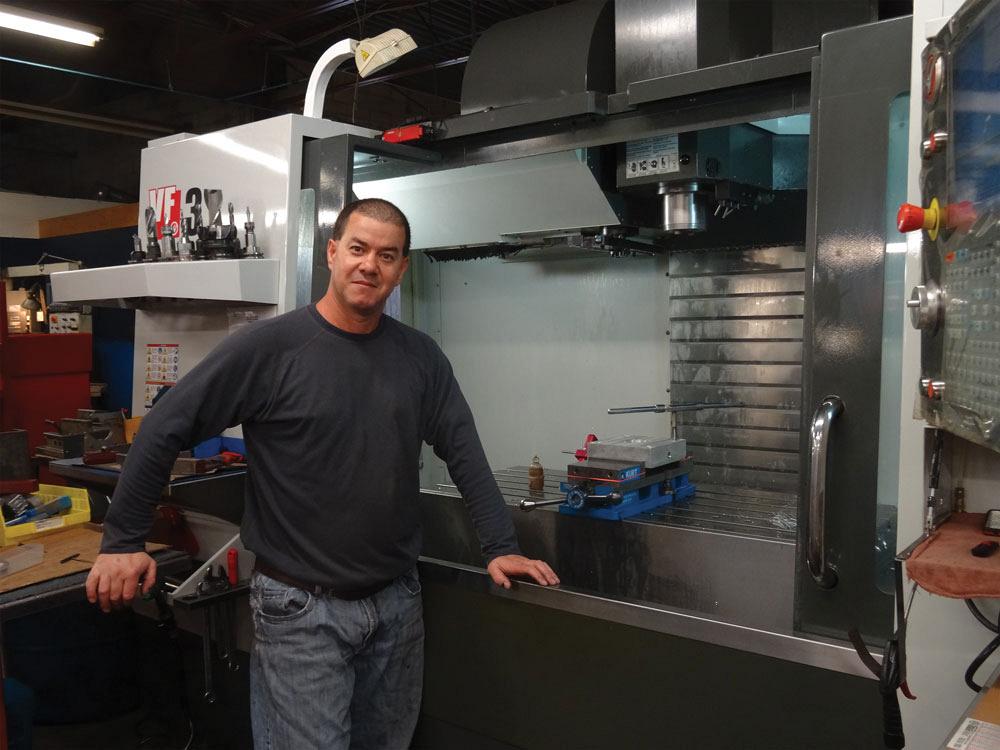
Carlos Rolo, CNC mill supervisor, works on the VF-3 vertical machining cntre, one of the many Haas machines on the shop floor.
After weathering several storms over the past several years, GPL is finally seeing all its hard work pay off. The company hopes to expand in the coming year as it takes on more new jobs across different industries. Recently the company has been approached to get into fabricating, something that it currently outsources, as the oil and gas sector ramps up and new opportunities become available.
Founder Germano Pinto Lobo, 77, has had the opportunity to watch his son and daughter-in-law take the company to new heights. Germano still actively works at the shop, and Elizabeth noted that he always comes in with a smile, knowing his "baby" is in good hands and will continue his successes going forward. Navigating through some tough times has enabled the company to pause and assess what’s important to help grow the business.
Associate Editor Lindsay Luminoso can be reached at lluminoso@canadianmetalworking.com.
GPL Machine & Tool Inc., www.gplmachine.com
About the Author

Lindsay Luminoso
1154 Warden Avenue
Toronto, M1R 0A1 Canada
Lindsay Luminoso, associate editor, contributes to both Canadian Metalworking and Canadian Fabricating & Welding. She worked as an associate editor/web editor, at Canadian Metalworking from 2014-2016 and was most recently an associate editor at Design Engineering.
Luminoso has a bachelor of arts from Carleton University, a bachelor of education from Ottawa University, and a graduate certificate in book, magazine, and digital publishing from Centennial College.
subscribe now


Keep up to date with the latest news, events, and technology for all things metal from our pair of monthly magazines written specifically for Canadian manufacturers!
Start Your Free Subscription- Industry Events
MME Winnipeg
- April 30, 2024
- Winnipeg, ON Canada
CTMA Economic Uncertainty: Helping You Navigate Windsor Seminar
- April 30, 2024
- Windsor, ON Canada
CTMA Economic Uncertainty: Helping You Navigate Kitchener Seminar
- May 2, 2024
- Kitchener, ON Canada
Automate 2024
- May 6 - 9, 2024
- Chicago, IL
ANCA Open House
- May 7 - 8, 2024
- Wixom, MI





